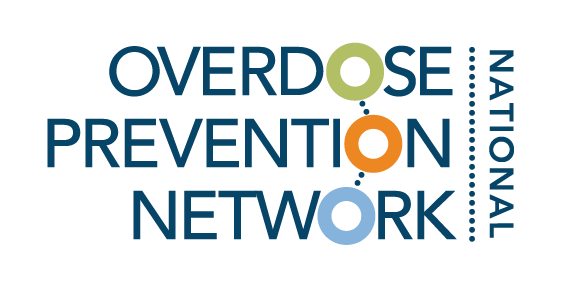
Resource Library
Toolkits, guides, and other resources vetted by experts in overdose prevention.
Filter by category and tags, or search by keyword (ex. COVID-19, harm reduction).
Isn't Two Enough?
Racial disparities in arrest rates for drugs are a well-documented (and lived) reality. For decades, drug policy has contributed to skyrocketing incarceration rates among minority populations. This video looks at the reasons behind these disparities, and what must be done to achieve improvements in health and racial equity.
Cannabis Prevention - Big Deal
This video describes the dangers of using "new marijuana" or “wax,” an altered version of cannabis that is mixed with other, more lethal substances. It shows how this more intense version of THC can negatively impact youth and their brain development.
Sacramento County Coalition for Youth
The SCCY is a group of caring community members working together to make Sacramento a safe place for young people to grow up, free from the influences of substances that are addictive and harmful.
See Her Bloom
This organization aims to engage Black women in California experiencing substance use disorder by providing culturally relevant resources and treatment options that empower their commitment to physical, spiritual and mental healing.
PRO Youth and Families
PRO Youth and Families partners with schools, community organizations, and local governments to engage youth in opportunities that inspire hope. PRO Youth and Families’ offers a variety of direct service programs for youth and supports the Youth & Family Collective initiative that uplifts community organizations, drives collaboration, and fosters capacity building for responsive youth and family programs and services.
Omni Youth Programs
Omni Youth Programs mission is to create strong families, develop youth leaders and engage the community to prevent youth alcohol, marijuana & other drug use.
1 Pill Can Kill
More people are dying from fentanyl-related deaths than firearm-related homicides in Sacramento County. This web page offers resources and stories about how fentanyl-laced pills have affected Sacramento County, and what we can do to curb overdoses in our communities.
A Tale of Two Zip Codes
When it comes to our health, our zip code matters more than our genetic code. For many communities in California and across the United States, easy access to healthy food options, parks for exercise, and good schools determines quality & length of life. The California Endowment’s 10-year Building Healthy Communities initiative seeks to bring equity to all neighborhoods so that all Californians can enjoy the benefits of healthy communities to live long and prosper.
Top 10 California Hospital Naloxone Distributors Saving Lives
Within the past two years, 93 California hospital emergency departments have ordered 63,816 units of free, take-home naloxone using CA Bridge’s Guide to Naloxone Distribution. Learn about the top 10 hospital naloxone programs and the life-saving impact these hospitals have on their communities.
CDC Trainings and Resources to Promote the Importance of Naloxone
Naloxone is a life-saving medication that can reverse the effects of an opioid overdose when administered in time. By increasing naloxone access and awareness in our communities, we can help save lives. Check out the CDC's new resources to help promote naloxone dispensing in your community.
NCIPC Funding Webpages for Overdose, Suicide, and ACEs
The CDC NCIPC Budget & Impact webpage has been refreshed and now includes State Investment Snapshots on Overdose, Suicide, and ACEs that communicate funding and programmatic data across their three priority areas at the state-level.
ASAM Weekly
The American Society of Addiction Medicine (ASAM) created ASAM Weekly which is a source of timely, useful news briefings of top stories from the field of addiction medicine.
Lake County Office of Education Naloxone Policy
This is an example of a local naloxone policy implementing by a county office of education. This policy allows for the superintendent or designee or any trained district staff member to administer naloxone during an opioid overdose and includes language to ensure the superintendent or designee to train and distribute naloxone kits to district staff and replace if used or expired.
Mental Health First Aid
Mental Health First Aid is a skills-based training course that teaches participants about mental health and substance-use issues. Learn more about it here.
Tools for Overdose Prevention
Overdose death in the United States has increased at an alarming rate since the onset of the COVID-19 pandemic with an increase of 30% in 2020 compared to 2019. To help public health practitioners prevent overdose, the National Council for Mental Wellbeing and the CDC developed these resources and tools.
988: Reimagining Crisis Response
In 2020, the nation took a significant step forward with the enactment of the National Suicide Hotline Designation Act, a bill NAMI advocated for that created a nationwide three-digit number (988) to assist people experiencing a mental health or suicidal crisis. This fact sheet delves deeper into the purpose of the 988 line, and what it hopes to achieve.
988 Suicide & Crisis Lifeline
The new 988 mental health hotline is a way of providing 24/7, free and confidential support to people in suicidal crisis or emotional distress. This fact sheet from SAMHSA answers some FAQs relating to the implementation and sustainability of the 988 line.
Cypress Resilience Project
The purpose of this project is to support the inherent resilience of individuals and communities who are managing trauma, experiencing grief and navigating mental health challenges. This webpage offers resources and trainings on how to achieve this goal and implement these strategies into your own organization.
988 Suicide and Crisis Lifeline
The resources and information on this page are designed to help states, territories, tribes, mental health and substance use disorder professionals, and others looking for information on understanding the background, history, funding opportunities, and implementation resources for strengthening suicide prevention and mental health crisis services.
Mental Health First Aide: Why Get Certified?
Trauma expert Brooke Briggance promotes mental health first aide training, a valuable method of supporting overdose prevention strategies through de-escalation and behavioral health.




















